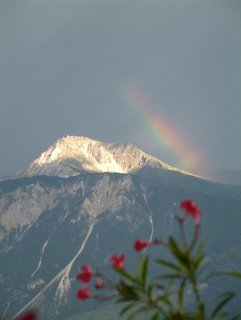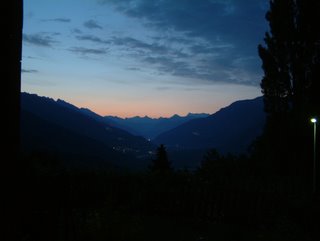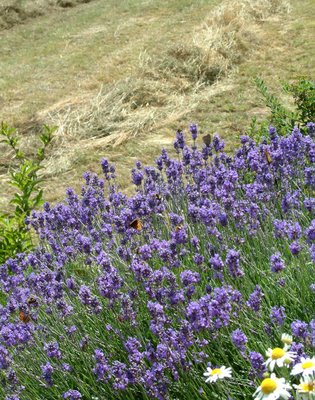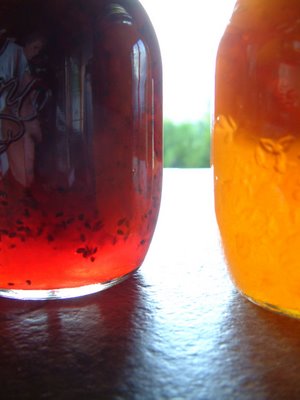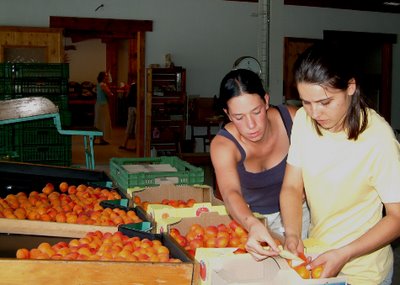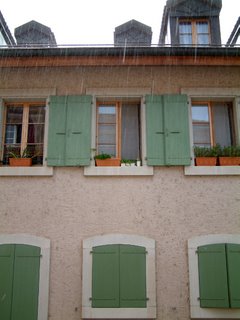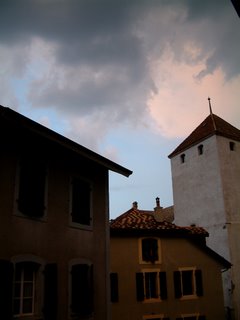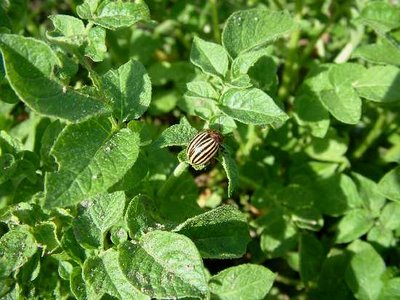We are in the thick of pie season here. The gooseberry one disappeared rapidly and I suddenly found myself with a bag of peaches, with an expectant look on the part of the gift-giver.
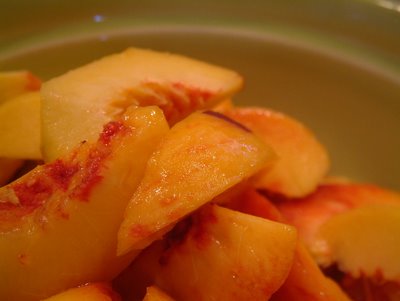
Once and sometimes twice a summer we have peach pie. Some peaches are grown in this part of Switzerland (there is another story there, but I will photograph the ruins of an old house in order to tell you the tale), but not many. Mostly we wait for peaches from northern Italy to ripen and make the two-hour trip over the border.
Here is the life of a peach pie at our house, any July.
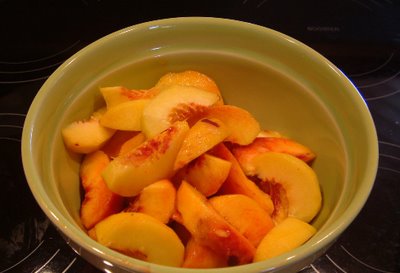
I like the peaches cut into about 8-10 slices, not too thick, not too thin. Ripe and juicy and sweet.
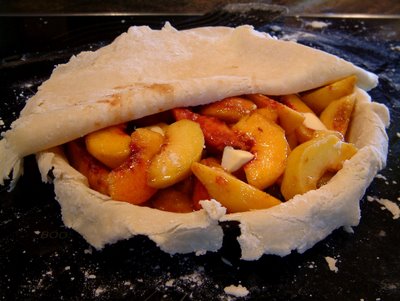 After I add the peaches I dot them with a bit of butter, so the cornstarch/brown sugar/cinnamon and nutmeg thickens as it mixes with the fruit's juice while cooking
After I add the peaches I dot them with a bit of butter, so the cornstarch/brown sugar/cinnamon and nutmeg thickens as it mixes with the fruit's juice while cooking
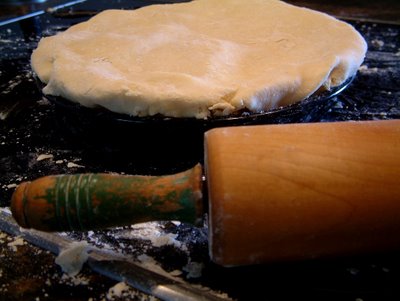 My mother gave me this rolling pin, which her mother had, a lovely heavy wooden one. My mother never liked to bake pies from scratch - too much work - but her mother did and I can still smell the pies Grandma baked and that greeted us at her door.
My mother gave me this rolling pin, which her mother had, a lovely heavy wooden one. My mother never liked to bake pies from scratch - too much work - but her mother did and I can still smell the pies Grandma baked and that greeted us at her door.
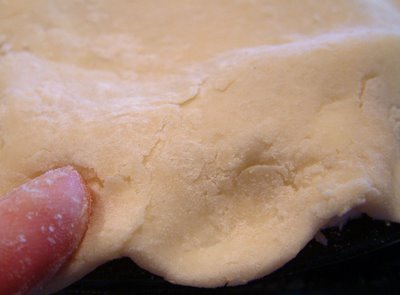 I love to have pies look nice and one of my favorite parts of baking is adding the top crust. I sometimes trim the edge with a fork tong but I like to make finger indents for a ruffled edge when I bake peach pie. No reason why, just a small personal tradition!
I love to have pies look nice and one of my favorite parts of baking is adding the top crust. I sometimes trim the edge with a fork tong but I like to make finger indents for a ruffled edge when I bake peach pie. No reason why, just a small personal tradition!
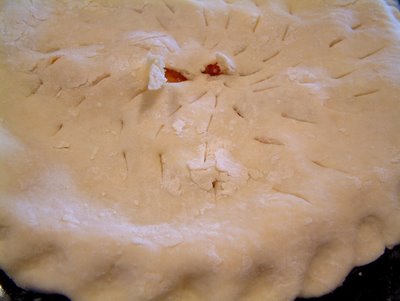 And then the top is decorated, here with a fireworks design for the Swiss national holiday August 1 (the pie won't last that long, though). Technically, these are steam vents, but they are mainly for fun.
And then the top is decorated, here with a fireworks design for the Swiss national holiday August 1 (the pie won't last that long, though). Technically, these are steam vents, but they are mainly for fun.
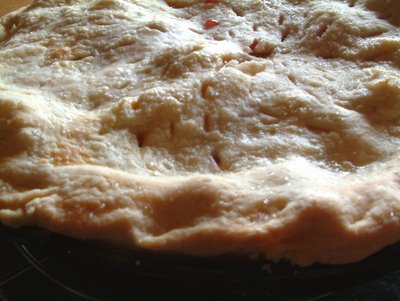 Into the oven and 35 minutes later out: golden and crisp. My Swiss neighbors are shocked at the American notion of a two-crust pie, and partly due to their sensible influence I have learned to make sure the dough is rolled very thin so the crusts are not heavy.
Into the oven and 35 minutes later out: golden and crisp. My Swiss neighbors are shocked at the American notion of a two-crust pie, and partly due to their sensible influence I have learned to make sure the dough is rolled very thin so the crusts are not heavy.
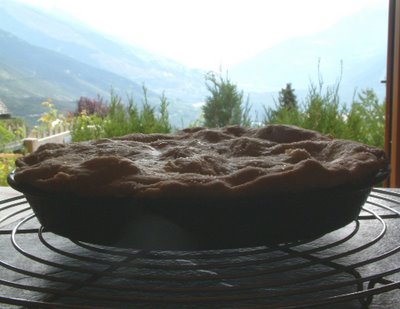 Cooling is the hardest part. I hope by giving the pie a nice view of the mountains and a little breeze from outdoors I can encourage it to cool faster. Everyone keeps asking how soon we can eat it.
Cooling is the hardest part. I hope by giving the pie a nice view of the mountains and a little breeze from outdoors I can encourage it to cool faster. Everyone keeps asking how soon we can eat it.

Every good pie baker is kind to those waiting by letting a little extra crust sit on the edge, untidy. That obliges at least one person to come along and try to "just tidy up" the edge, thereby getting an advance nibble.
The coffee is made, the hot milk whipped up so it is lovely and foamy at the top of the mug.
The pie is cut, usually one slice at a time so there are no arguments over whether or not the person on slicing duty has made the pieces equal.
The art of getting the first slice out neatly is one I doubt we will ever master, but we keep trying. The alternative of no slices is worse than untidy ones.
This time we did pretty well.
[two more photos, the end result, will follow - Blogger seems to have problems and I can't upload them now :-( ]
















